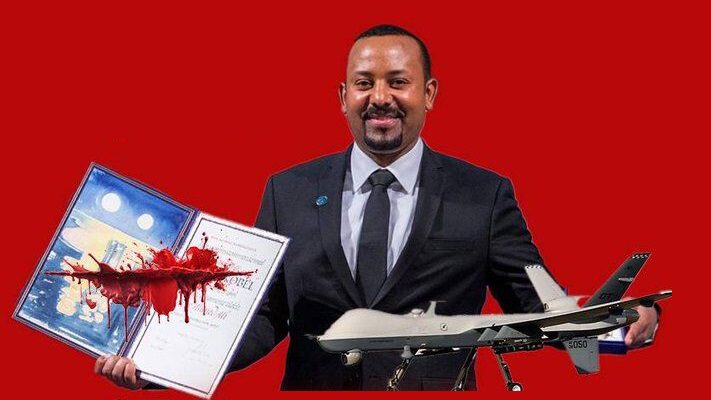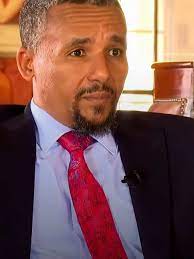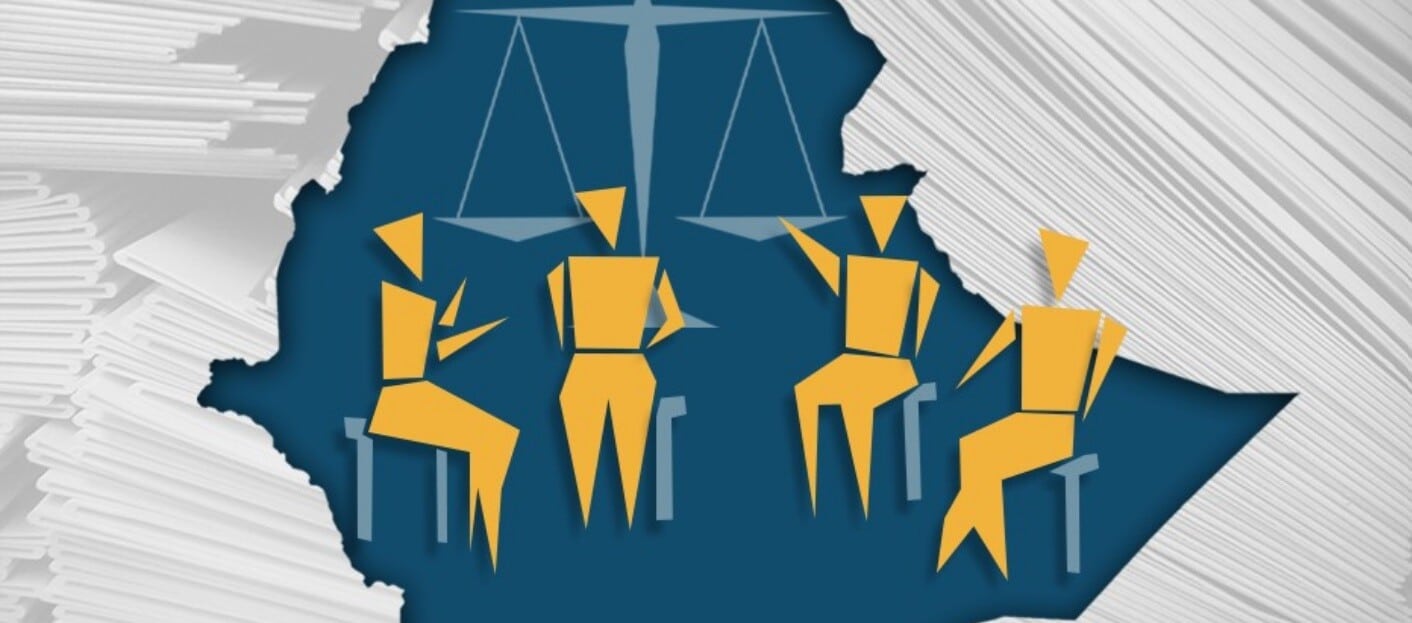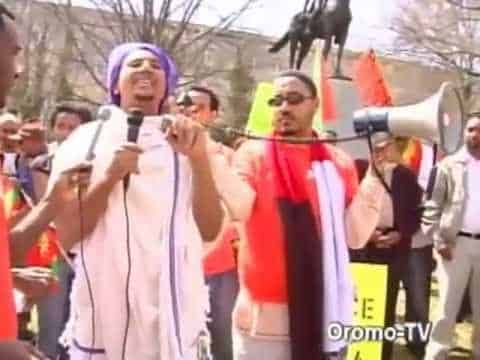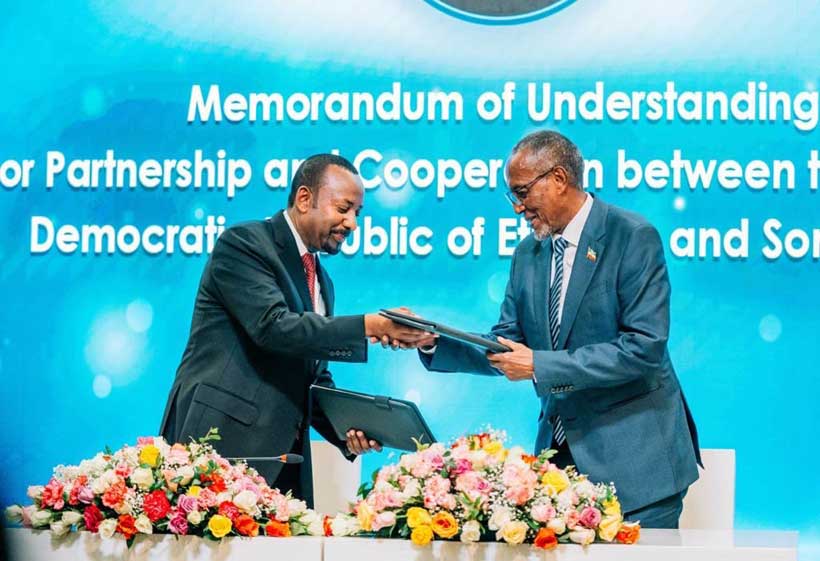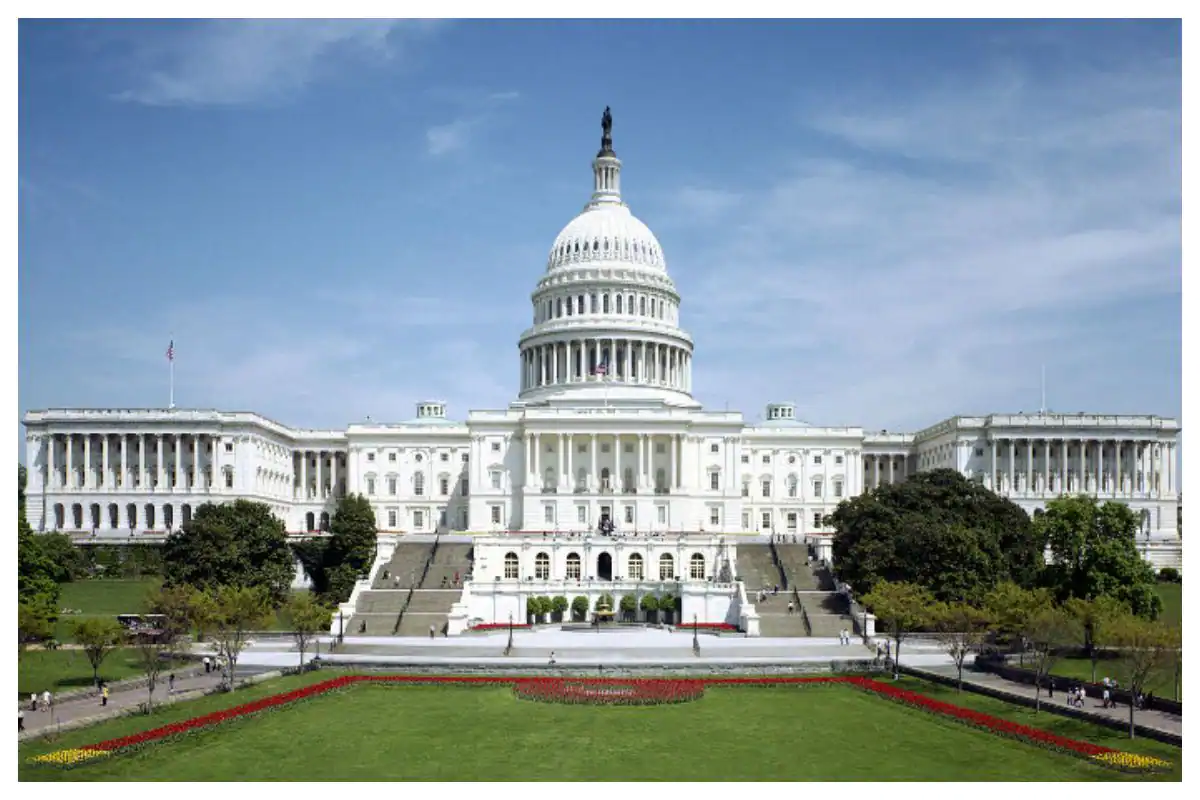By: Metta-Alem Sinishaw
Washington, DC
June 22, 2019
Summary: Based on shared grievance, ADP and ODP forged partnership, ended TPLF’s hegemony, and agreed to perfect their relationship within democratic Ethiopia. Despite improvement, ODP’s claim over Addis Ababa, its domination on federal power structure, and absence of transformative vision brought a disappointment. Increasing ethnic tension, lack of law and order, and failure to response to the plights of those who brought the change further divided critical allies on the objective and course of the reform. As mutual suspicion and militia buildups among dominant ethnic groups escalated, division among political and military figures intensified and eventually gives birth to the tragic event. Abiy’s strategy in filling the leadership vacuum, identity and qualities of the Chief-of-Staff and ADP’s leadership replacements will largely determine Ethiopia’s journey towards democratization. Amidst the leadership vacuum, will Abiy build a team of reformers and continue democratization, or purge perceived rivals to consolidate his power and emerge as a King?
Masquerading under the name of “Ethiopian People Democratic Revolutionary Front” (EPRDF), the Tigray People Liberation Front (TPLF) has been dominating the Ethiopian power structure using handpicked representatives for Amhara (ADP-Amhara Democratic Party), Oromo (ODP- Oromo Democratic Party), and Southern people (SEPDM). For nearly three decades since 1991, TPLF reigned by pitting the ADP and ODP, against each another. It portrays itself as beacon of stability and a guarantor of the constitution in which the Amhara had never participated and the Oromos were pushed aside.
Based on common grievances, ADP and ODP forged the ephemeral Oro-Mara (Oromo- Amhara) formidable tactical partnership to end TPLF’s hegemony. The partnership lacked long-term shared vision, but ADP and ODP agreed to perfect their historical relation with in the largest and democratic Ethiopia. Aspiring for the occupied territories, constitutional revision, and genuine Census for better representation, ADP provided indispensable support to the ascendance of Abiy Ahmed both to the helm of EPRDF’s leadership and State power early in 2018.
The new administration demonstrated genuine commitment towards democratization, lifted media restrictions, brought exiled politicians and outlawed political parties to home, signed peace accord with Eritrea, promoted gender parity, promised free, fair, and credible elections, expanded political space, released thousands of prisoners and introduced legal reforms to address local ethnic conflicts. Ethiopians in general, and especially the Amhara, held mass demonstration of support in little and major towns alike. The Amhara diaspora flooded in thousands in western capitals to meet, greet, and praise Abiy for his initiatives in ways never seen before among Ethiopians.
The first sign of disappointment came when ODP openly claimed, contrary to historical facts and public knowledge, exclusive ownership over Addis Ababa, the Ethiopian capital city of more than a century old and whose population is predominantly non-Oromo. ODP allegedly engaged in shifting the demography for expanded dominance by bringing hundreds of thousands of ethnic Oromos to Addis Ababa. Eviction of non-Oromos from Addis Ababa led to the emergence of Addis Ababa city dwellers Council that demanded better conditions. The Council received strong condemnation from ODP and suffered from restricted freedom of assembly and speech that brought criticism from Amnesty international. Abiy’s open declaration to go to war against the Council not only caught the public by surprise but also considered as an endorsement of other Oromo radicals who are believed to have orchestrated the Addis Ababa ownership claim and mass eviction behind the scene. In addition, ODP’s increasing domination on the federal power structure, especially in the military and finance sectors, brought public dissatisfaction. A prominent Oromo politician was quoted to have said, “Oromo will rule Ethiopia for the next 3000 years” while middle level ODP leadership espouses the radical’s motto of “This is our Time to rule.” The assignment of foreign minister position to ADP served as an appeasement but the lack of shared vision and marginalization of ADP on Addis Ababa affair led to resentment and division among ADP’s leadership.
Second, the lack of security, growing ethnic tension, and government’s continued inability to maintain law and order became critical concern. After 15 months in power, the new administration has neither transformational plan nor any road map to assure the public about the transition towards democracy. Increased instability and massive displacements led some even to question the purpose and direction of the reform. The security crisis in Amhara region was so intense that it brought profound dissent among ADP leadership and eventually forced the change of leadership at Governorship.
Third, Abiy’s declaration “…the constitution will not be revised because one group of people has asked for,” has been considered not only as a slap on the face of his ardent supporter but also a sign of shattered partnership between ODP-ADP. It further marked ODP’s dominance over EPRDF and the replacement TPLF’s hegemony with that of ODP. Regional rivalry and militia buildup among dominant ethnic groups elevated ADP’s perceived threats. Overwhelmed by the security crisis, ADP recruited and trained local militia, albeit at minuscule scale relative to Tigray and Oromia, lately. The head of Amhara regional security Chief was seen very frustrated with increased instability, mounting public demand, and slow reaction of ADP’s leadership.
Be this at it may; on the weekend of June 22, 2019, intensely growing division among ADP’s key figures eventually give birth to the terrific event that took the lives of the ADP’s senior leadership in Bahir-Dar. In unclear but allegedly related event, the Chief-of-Staff and a retired senior army officer, in Addis Ababa, both from ethnic Tigray, were killed the same night. Since then, only government-controlled media insists that it was “unsuccessful Coup d’états” despite contradictory explanation from domestic and international sources. The loss of the finest civil and military leadership is a setback to Ethiopia’s reform and will undoubtedly have significant long-term implication on stability.
One of the first task should be appealing for calm and stability while explaining the true nature of the tragedy with credible information. Closure of internet only exacerbates public confusion and vulnerability to multiple explanation. Further delay will expose the inquisitive public for speculation based on conspiracy theories and increase instability.
Government’s conflicting statements raised transparency concerns and judiciary, law enforcement, and media are not yet fully independent. A neutral, independent, and credible investigation should be priority as pitting one group against the other could only intensify division, undermine social harmony, and aggravate instability. The impact of the calamity, irrespective of who committed what and where, is intensely profound that Ethiopians need to come-together and work closely with regional and federal governments, should they desire to foresee a stable and democratic Ethiopia, the failure of which could have severe consequences never seen before.
The loss of key political and military figures in murky circumstances left huge leadership void in Abiy’s key Stronghold State. For ADP, there is no way of going back to its past behavior but engage in serious reflection to assume its heavy and historical responsibility in the absence of key colleagues. It is imperative that ADP swiftly stabilizes the increasing ethnic tension and respond to the outstanding public demand through the implementation of ADP’s 12th Congress Resolution. The control of the Amhara regional security apparatus by federal forces poses serious legitimacy and moral concern. Unless full control of regional security structure is restored immediately, maintaining law and order remains impossible. Therefore, securing full control of the regional government security and administrative operation ought to be an urgent prime task.
The Prime Minister is also facing critical testing times: The wisdom with which Abiy would fill the leadership vacuum would be indicative of Ethiopia’s journey towards democratization. Restoring public confidence in his administration and reassurance of the military’s neutrality, especially maintaining its exclusive dedication to the constitution is paramount. The identity and quality of the Chief-of-Staff replacement is already on the public lookout as leadership in the military is heavily dominated by ODP. The veritable dilemma that Ethiopians and the international community astutely observing is that amidst vacant field: “whether Abiy will continue reforming without his key allies or use the incident to purge perceived rivals, consolidate his power, and emerge as the next king?

